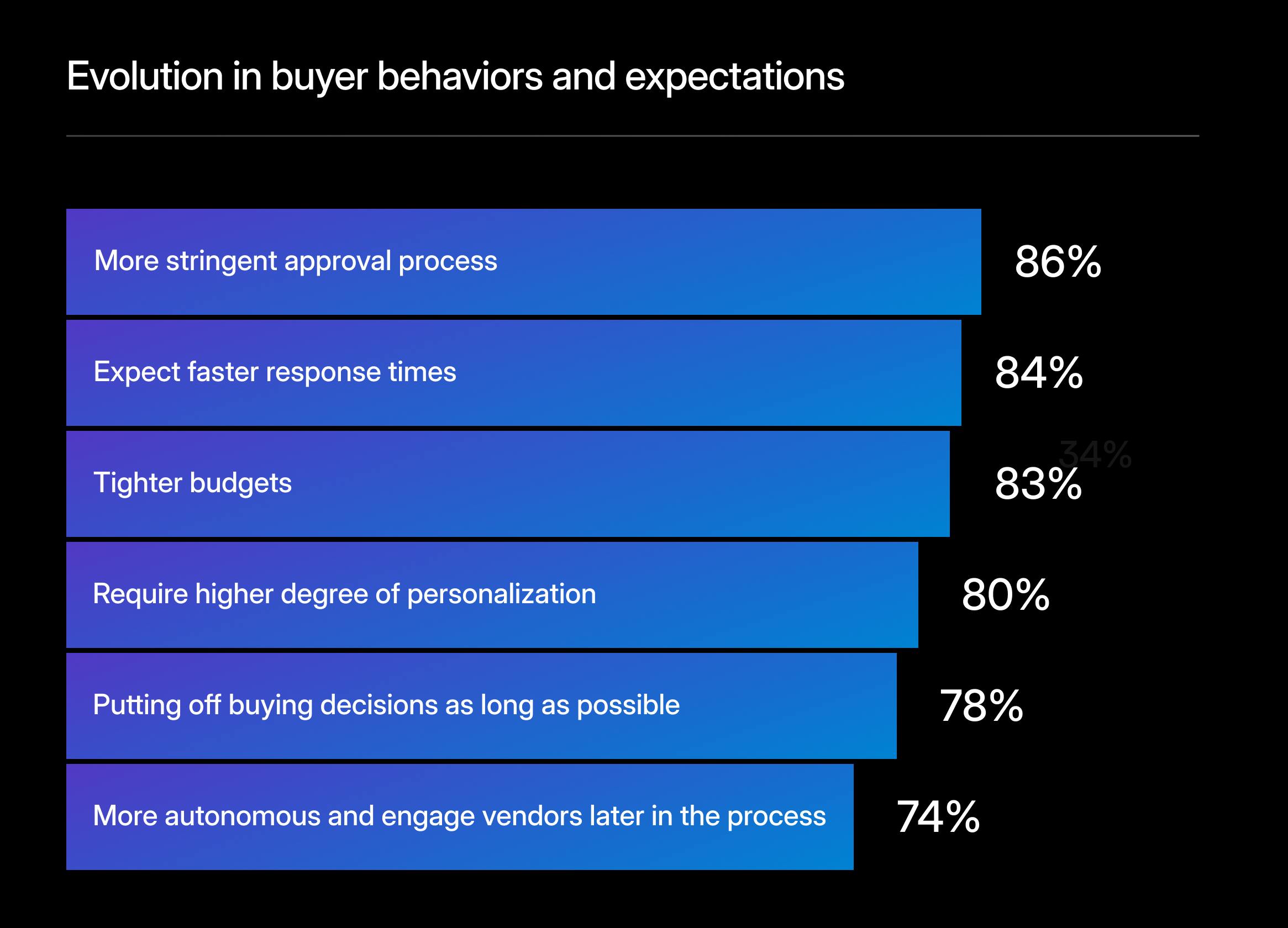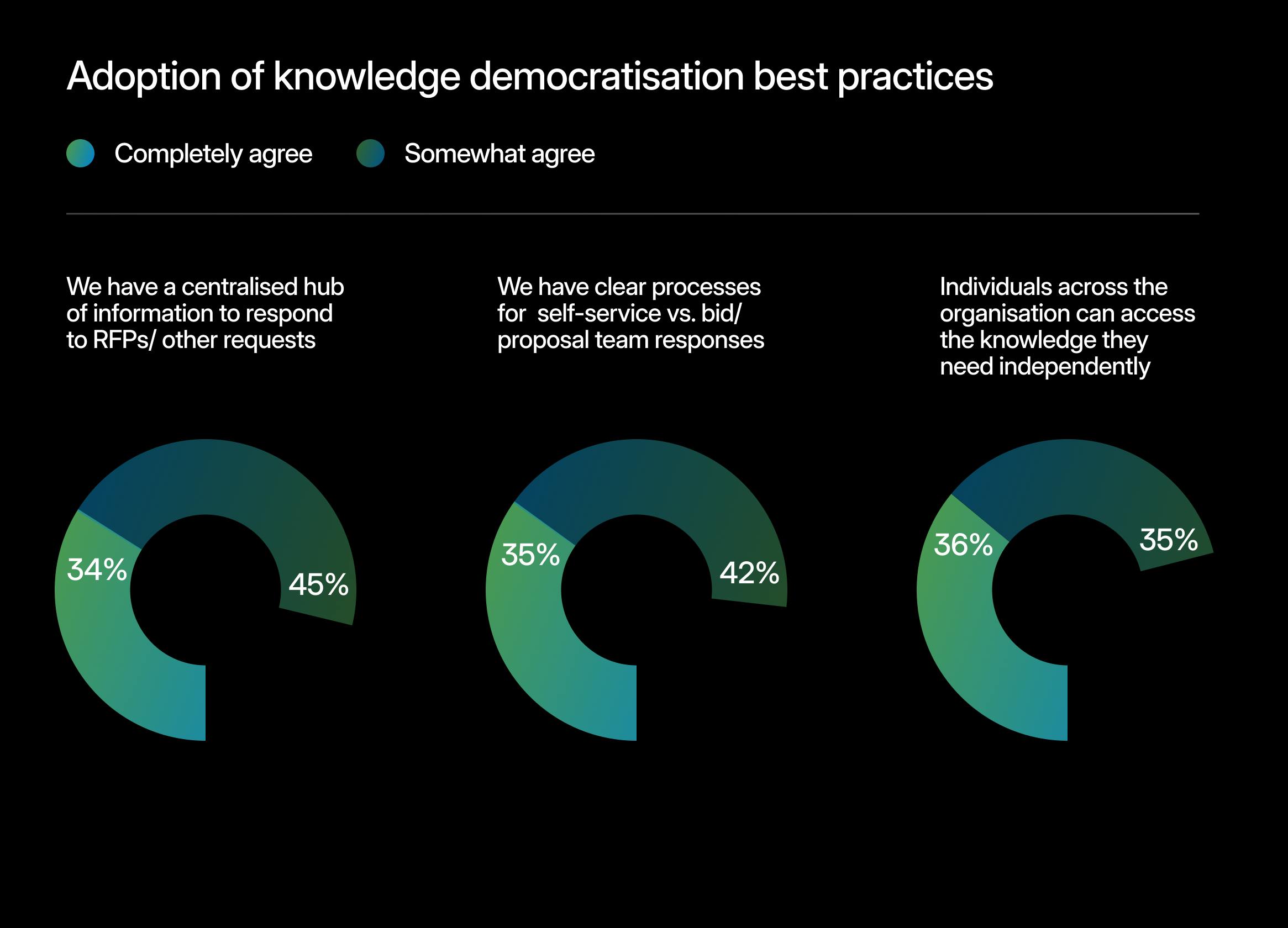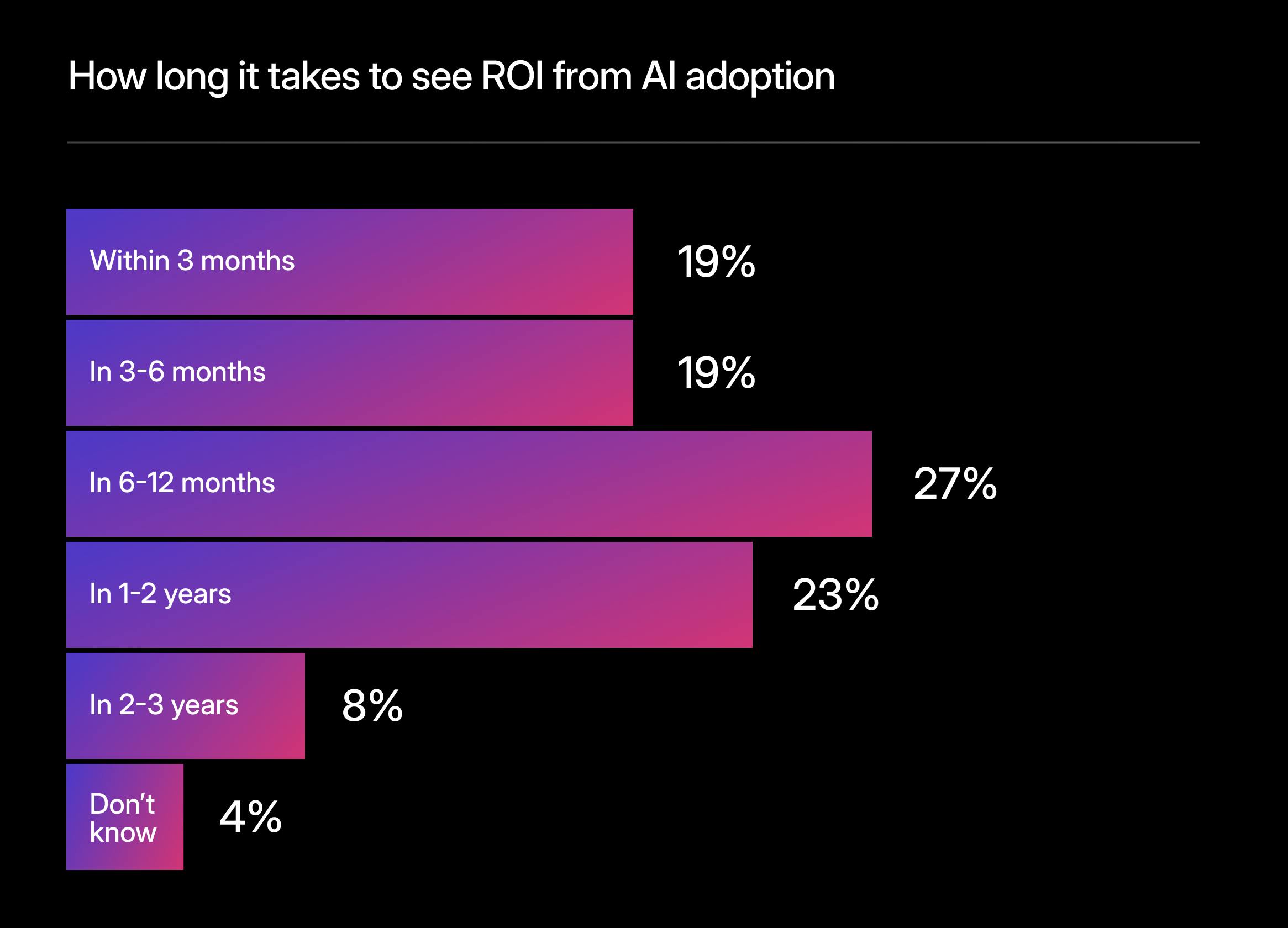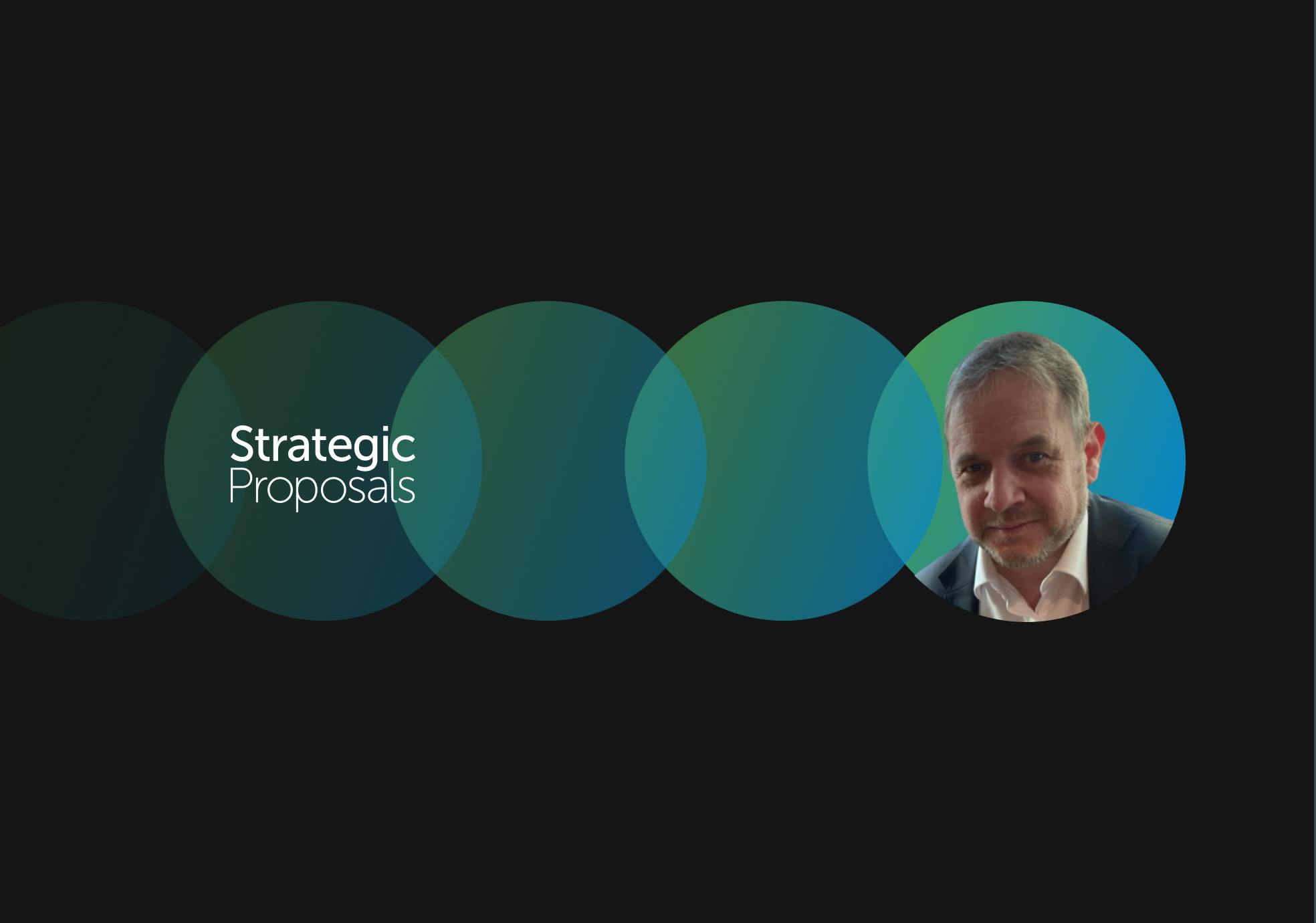
A peek at what's inside the report
Selling into a smarter market
With 4 in 5 organisations feeling pressure from compressed timelines, tighter budgets, and rising buyer autonomy, growth now hinges on personalization, agility, and proven customer value.

The architecture of growth
86% of organisations recognize bid teams as revenue drivers, but companies are largely underutilising knowledge democratization and data.

All in on AI
Nearly two-thirds of AI adopters see ROI within the first year, showing that Strategic Response Management is one of the fastest paths to AI payback.

Selling into a smarter market
With 4 in 5 organisations feeling pressure from compressed timelines, tighter budgets, and rising buyer autonomy, growth now hinges on personalization, agility, and proven customer value.



Featuring insights from
industry leaders

I see the bid manager role evolving into a facilitator, not just of projects, but of the AI environment itself. In the near future, bid managers will prompt effectively — maybe even build a GPT tailored to a specific customer or opportunity. It’s like setting up a working environment: you load in the documents, define context, and say, “Okay, this is the AI agent we’re going to work with for this bid.”

The people who will succeed are the ones who know how to collaborate, challenge assumptions, and guide the AI — not just use it. Emotional intelligence, curiosity, and critical thinking — those are the differentiators. And they are uniquely human skills that are rising in importance.

We used to brag about how late we stayed up, how many hours we worked — it was a badge of honor. But now, leaders are caring more for their teams, thinking about wellbeing and burnout. And that’s a good thing. If AI can help us be more selective, do better work, and avoid burnout, then that’s the version of adoption that actually sticks.

The real problem is that most bidding organizations are just tinkering with AI. They’re doing experiments here and there, but they haven’t really stepped back and asked, “What’s the strategy? What’s the goal?”

I see the bid manager role evolving into a facilitator, not just of projects, but of the AI environment itself. In the near future, bid managers will prompt effectively — maybe even build a GPT tailored to a specific customer or opportunity. It’s like setting up a working environment: you load in the documents, define context, and say, “Okay, this is the AI agent we’re going to work with for this bid.”

The people who will succeed are the ones who know how to collaborate, challenge assumptions, and guide the AI — not just use it. Emotional intelligence, curiosity, and critical thinking — those are the differentiators. And they are uniquely human skills that are rising in importance.

We used to brag about how late we stayed up, how many hours we worked — it was a badge of honor. But now, leaders are caring more for their teams, thinking about wellbeing and burnout. And that’s a good thing. If AI can help us be more selective, do better work, and avoid burnout, then that’s the version of adoption that actually sticks.

The real problem is that most bidding organizations are just tinkering with AI. They’re doing experiments here and there, but they haven’t really stepped back and asked, “What’s the strategy? What’s the goal?”
How does your organization stack up?
Take our 4-question quiz to see how you compare to top teams in the 2025 SRM Report — and find ways to level up.
Take the quiz
Discover the global SRM trends
See what top teams are doing differently to lead in a new era of pressure, complexity, and AI.
Read the report
Financial Services Industry Report
Dive into how firms are keeping pace with client demands and the rise of AI.
Read the report
By submitting, you agree to receive occasional marketing emails from us. You can unsubscribe at any time. View our Privacy Policy.

